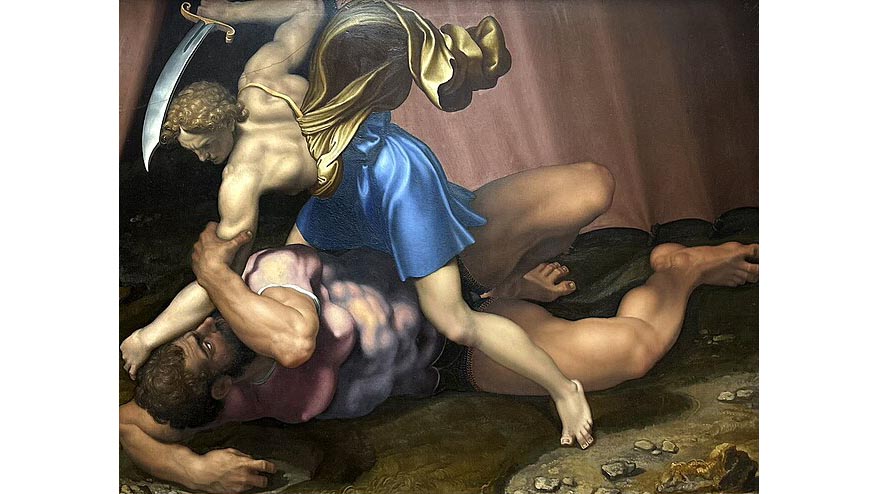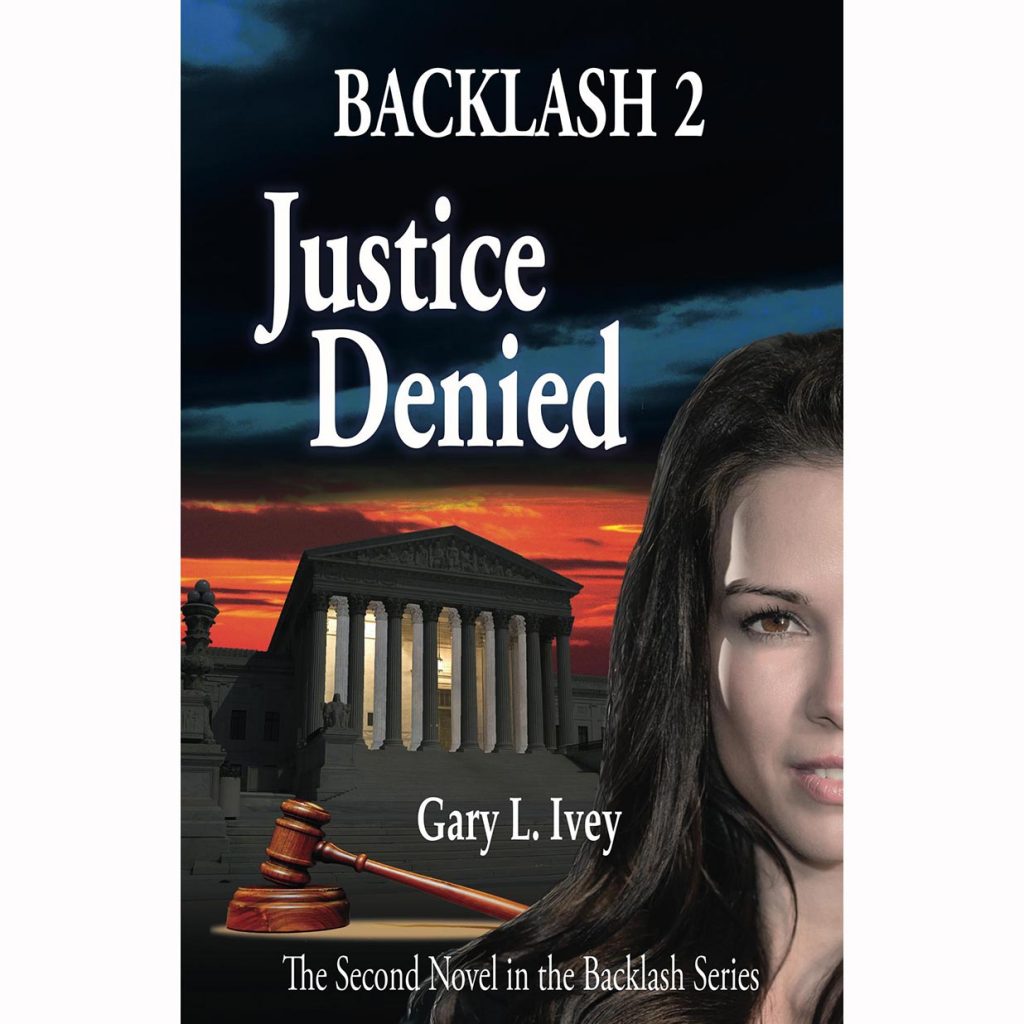(Image public domain from Wikimedia Commons)
The story of David and Goliath is an iconic underdog story and “David and Goliath” is applied as a catch-phrase every time there is an underdog pitted against a gargantuan foe.
But how well do we know the story in the context of the stories on either side of it? Did you know that there’s a problem with the story that some skeptics have used to inspire doubt in the Bible?
It has to do with the question: Did King Saul know David BEFORE he killed Goliath?
If you only know the story of the killing of Goliath, you’re inclined to think they didn’t know each other before David showed up and killed the giant. To recap briefly, the army of King Saul was immobilized because Goliath challenged them to send out their champion to fight him in proxy combat, proposing that, if he won, the Israelite army would be slaves to the Philistines and if the Israelite champion won, the Philistine army would be slaves to the Israelites.
Then young David shows up to bring food to his three soldier brothers, having been sent by their father, Jesse. When he sees the challenge of Goliath, (which happened twice a day for 40 days!) he volunteered to fight the giant.
And we know how that turned out. David’s skill with the sling won the day, though the Philistines didn’t hang around and become slaves for the Israelites.
The question comes at the end of the story, beginning in 1 Samuel 17:55: “As Saul watched David going out to meet the Philistine, he said to Abner, commander of the army, ‘Abner, whose son is that young man?’ Abner replied, ‘As surely as you live, Your Majesty, I don’t know.”
So that would seem to say that Saul didn’t know David before that day, but there’s a problem. In the immediately preceding chapter, we are told that Saul was being tormented by an evil spirit (1 Sam. 16:14ff), so his attendants advised seeking someone who could play music that would soothe him and “you will feel better.”
Saul ordered a search, and someone said, “I have seen a son of Jesse of Bethlehem who knows how to play the lyre.” Subsequently, David comes to Saul’s court, plays his lyre and it has the desired effect and Saul communicates with Jesse, asking him to let David stay and play for him regularly.
This is obviously problematic because Saul is told in chapter 16 that David is the “son of Jesse,” but in the very next chapter, Saul seems to have no idea, not just who David is, but specifically who his father is, too.
So you can see how skeptics would seize on that as a fatal problem of scriptural inspiration. These two chapters are in clear contradiction. Is there a way to harmonize them?
First we have to remember that the books of 1 & 2 Samuel, as well as the books of Kings and Chronicles, have no stated author, unlike books of the Bible like Isaiah, Jeremiah, Ezekiel, and the individual Psalms, as well as New Testament books like the Gospel of Luke, Acts, Revelation and the epistles of Paul, all of which explicitly state who authored them.
So since no author is given, it is very possible that these accounts were from different sources and someone assembled them into an order that made sense (roughly chronological) to preserve the record. In some cases this was done much later. Some of the same material that is in 1 & 2 Samuel is also in 1 Chronicles for example, but we know 1 Chronicles was not “written” or assembled until AFTER the Babylonian captivity, because it reports the families who returned to Judea, which happened 500 years after the events of Saul and David which are also recounted there.
1 & 2 Samuel are obviously more contemporary than Chronicles, but they may still have been assembled from multiple sources. If 1 Sam. 16 was from a different source from 1 Sam. 17, each may not have known the details of the other’s story and so they would be unaware of the potential contradiction of Saul’s question to Abner about David’s father.
Which begs another question: why did whoever assembled the two accounts side-by-side not clean up the discrepancy?
I think the answer to that lies in the fact that the scribes who handled the texts regarded them as sacred and wouldn’t have dreamed of making changes, even though it created problems. Was that always the case? Absolutely not. If you want a stark example of a scribe making a change to a text, compare 1 John 5:7 in the King James Version with a more modern version, like the New International Version.
So in the case of 1st Samuel, the editor regarded fidelity to the original text to be more important than conflicting details like, did Saul know David (and his father) before David killed Goliath.
I think Saul did know David before the episode with Goliath, and that’s the way I wrote the story in my biblical historical fiction novel Quest for a King. I show David playing for Saul, then having to return home, only to show up again at the battle. I left out Saul’s question to Abner to not muddy the water.
For me, it seems entirely plausible that Saul might not recognize David when he returned. After all he must have been young when he came to court the first time, perhaps a preteen, whereas he was probably at least 15 when he killed Goliath, so he could have grown and changed a lot. Add to that the fact that Saul was basically insane and tended to imagine things and people being a threat to him, and it’s understandable that he might not have remembered David when he saw him out of his usual context.
So I think the answer is, “Yes,” Saul knew David before he killed Goliath.







